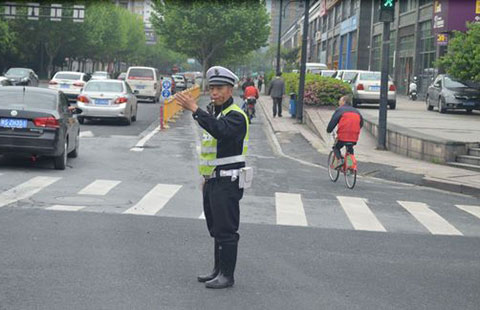Repatriation and recovery targeted to combat graft
By Zhang Yi (China Daily) Updated: 2016-05-06 08:30
The repatriation of suspects and recovery of illicit money are the focus of the Fox Hunt operation this year aimed at seizing corrupt officials and economic fugitives who flee China.
Fox Hunt forms part of the Sky Net campaign led by China's top anti-graft agency, which was launched in 2014.
This year's goals were outlined by the Ministry of Public Security on Wednesday.
Meng Qingfeng, vice-minister of public security, who is in charge of the operation, asked police departments nationwide to target the right suspects, to work more efficiently and to bring them to justice.
The ministry said it will work with the People's Bank of China, the central bank, to launch a special operation to crack down on the illicit transfer of money overseas. It will also help the central government's efforts to root out irregularities in officials' overseas trips.
In November, Chinese authorities uncovered the country's biggest underground banking case, involving transactions of more than 410 billion yuan ($64 billion).
The ministry says underground banks have been used for laundering money obtained from corruption, online gambling, telecommunications fraud, drugs and terrorism.
The Central Commission for Discipline Inspection, the top anti-graft watchdog, announced two weeks ago that it had decided to continue the Sky Net campaign this year.
The commission will coordinate the campaign with the Ministry of Public Security, the Supreme People's Procuratorate, the People's Bank of China, the Organization Department of the Central Committee of the Communist Party of China, and the Ministry of Foreign Affairs.
During Fox Hunt 2015, China seized 857 fugitives from April to December hiding in 66 countries and regions, according to the Ministry of Public Security.
Huang Feng, a professor of international criminal law at Peking University, said the economic fugitives who flee overseas usually have substantial funds with which to buy properties, and live under assumed names.
They can also move between different countries to elude capture, or hire experienced lawyers to exploit legal loopholes to prevent being repatriated, Huang said.
It would also be difficult to repatriate suspects who have become citizens of other countries, as their right to live in these countries would be protected and the procedures involved likely to be more complicated, Huang said.
In April last year, Interpol's China bureau released a list of 77 men and 23 women wanted worldwide who are suspected of being involved in corruption and economic crimes. The list is part of the Sky Net campaign.
- Inspection teams to cover all of military
- Disney promises Xi 'safe, high-quality' park
- Palace Museum confirms ancient relics find
- Clinical use of disputed therapy prohibited
- Tsinghua University breaks into top 20 in Times' global ranking
- Murder raises concerns over car
-hailing services - Caregiver sentenced to death for murder
- Car-hailing app driver robs woman, kills her in Shenzhen
- No letup in anti-graft fight, Xi warns Party ‘cabals and cliques’
- Families demand refunds for cancer treatment








